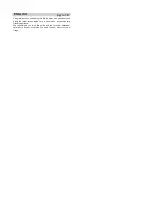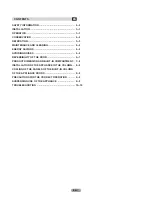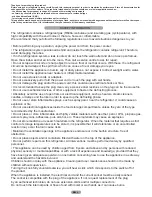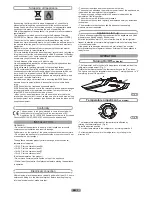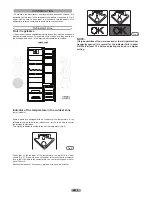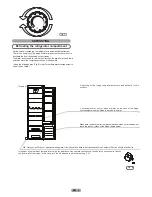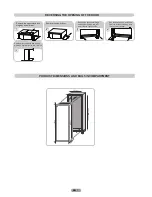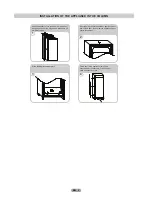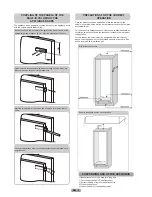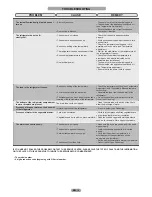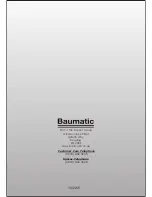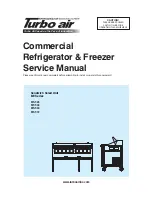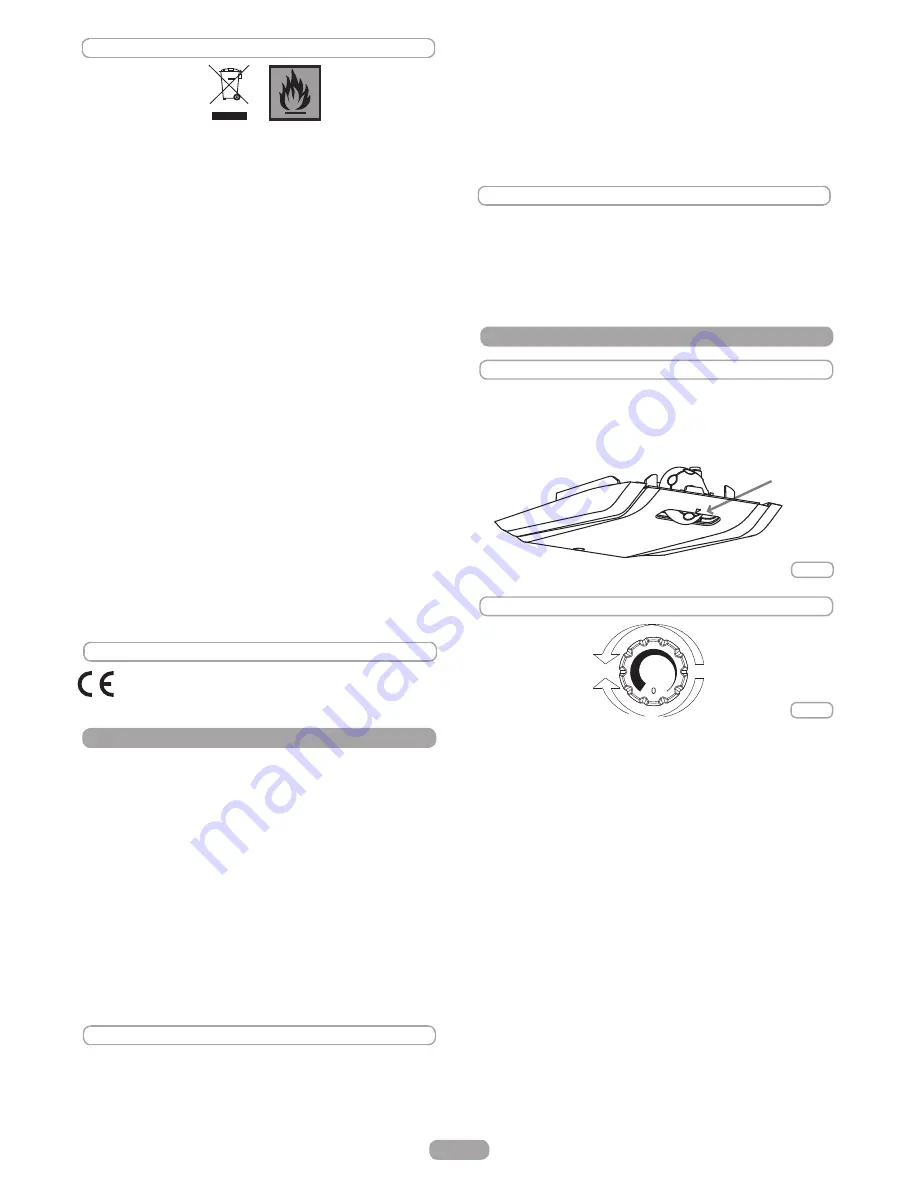
EN
3
Fig.
2
5
By ensuring that this product is properly disposed of, you will help
prevent potential negative consequences for the environment and
human health, which could otherwise arise due to inappropriate waste
handling of this product on reaching the end of its working life.
With proper disposal of the appliance, it is possible to recover valuable
raw materials!
This appliance is marked as conforming to the European Directive
2012/19/EU on Waste of Electrical and Electronic Equipment (WEEE).
The symbol on the product indicates that this appliance may not be
treated as normal household waste; it must, instead, be delivered over to
the nearest collection point for the recycling of electrical and electronic
equipment.
Disposal must be effectuated in accordance with the environmental
regulations in force for waste disposal.
For more detailed information about treatment, recovery and recycling of
this product, contact the competent public office (Department of Ecology
and Environment), your home household waste disposal service, or the
shop where you purchased the product.
Cut and dispose of the power cord with the plug.
Up until appropriate disposal, do not damage the tubing because they
contain the refrigerant gas.
For the disposal of packing materials, follow local regulations.
WEEE contains both polluting substances (which can cause negative
consequences for the environment) and basic components (which can
be re-used). It is important to have WEEE subjected to specific
treatments, in order to remove and dispose properly all pollutants, and
recover and recycle all materials.
Individuals can play an important role in ensuring that WEEE does not
become an environmental issue; it is essential to follow some basic
rules:
-WEEE should not be treated as household waste.
-WEEE should be handed over to the relevant collection points managed
by the municipality or by registered companies. In many countries, for
large WEEE, home collection could be present.
- when you buy a new appliance, the old one may be returned to the
retailer who has to collect it free of charge on a one-to-one basis, as long
as the equipment is of equivalent type and has the same functions as the
supplied equipment.
• The socket is earthed and in compliance with the law.
• The socket can withstand the maximum power load of the appliance, as
indicated on the nameplate of the refrigerator.
• The power supply voltage is within the amounts indicated on the
nameplate of the refrigerator.
• The cord must not be folded or compressed.
• The cord must be checked regularly and replaced solely by authorized
technicians.
• The manufacturer declines any liability whenever these safety
measures are not respected.
Remove all wrapping/packaging present inside the appliance and clean
with water and baking soda or neutral soap.
After the installation, wait 2 - 3 hours to allow time for the refrigerator/
freezer to stabilize at normal working temperature, before placing fresh
or frozen foods inside.
If the power cord becomes disconnected, wait at least five minutes
before restarting the refrigerator/ freezer. At this point, the appliance is
ready for use.
• The thermostat unit for control of the appliance is located inside of the
refrigerator compartment (Fig. 1).
Rotate the thermostat knob of the thermostat beyond the “0” position.
The light is on when the refrigerator door is open. Turning the knob to “0”
completely turns off the product.
• The temperature adjustment of compartment is effected by
rotating the thermostat knob (Fig. 2).
Select the desired position:
• For colder temperature in the refrigerator , by turning towards 5.
• For temperature less cold in the refrigerator , by rotating in the
direction of 0.
WARNINGS:
• Do not install the appliance in a damp or wet location as this could
compromise the insulation and result in leakage.
Furthermore, on the exterior of the same, condensate could accumulate
• Do not place the appliance in locations outside or near sources of heat
or exposed to direct sunlight.
The appliance operates properly within the range of environmental
temperatures indicated:
+10 +32’C for the climatic class SN
+16 +32’C for the climatic class N
+16 +38’C for the climatic class ST
+16 +43’C for the climatic class T
(See the nameplate of the product)
• Do not place containers with liquids on top of the appliance.
• Wait at least 3 hours after final placement before placing the appliance
in operation.
After shipping, place the appliance vertically and wait at least 2 - 3 hours
before connecting it to the electrical system. Before inserting the plug
into the electrical socket, make sure that:
This equipment, in the parts intended to come into contact with
food products, is in conformity with the requirements of EC
Regulation No. CE 1935/2004. Apparatus conforms with European
Directive 2004/1 08/EC, 2006/95EC and successive amendments.
Scrapping old appliance
Conformity
Appliance start-up
Turning On/Off
(no display)
Temperature adjustment
(no display)
OPERATION
Electrical connection
INSTALLATION
Fig.
1


